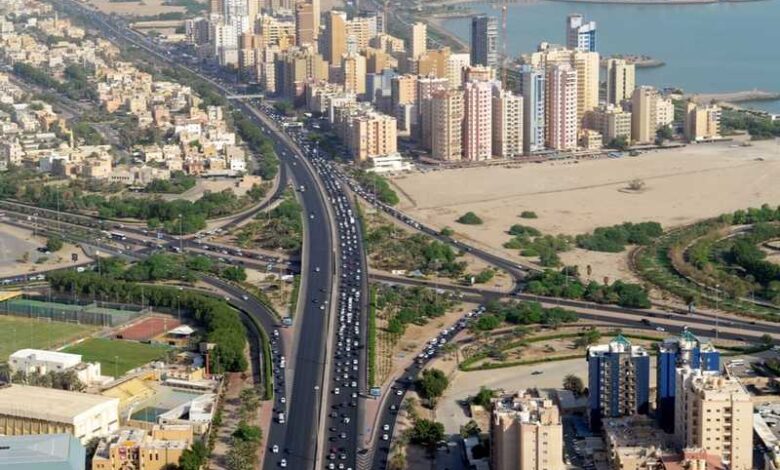
The National Bank of Kuwait’s report suggests a positive outlook for real estate activity in 2025, driven by stronger non-oil economic growth and the potential for lower interest rates.
Importantly, key legislative reforms, particularly the recent amendments to the residency law granting long-term residencies for owners and investors (ranging from 10 to 15 years), along with new regulations on real estate ownership by non-Kuwaitis, are expected to play a crucial role in reshaping the market.
The report highlighted that the new law, which allows authorities to review service fees and regulate workers’ living conditions, is expected to directly impact the real estate market. It could boost demand for investment and commercial properties, but may also intensify upward pressure on rents, particularly for housing aimed at low-wage workers.
The anticipated passage of the Real Estate Finance Law is expected to boost demand in the residential sector, with reports indicating a shift towards expanding home ownership financing.
The amendments include raising the maximum home loan limit offered by local banks to KWD 130,000 at an interest rate of 2% above the discount rate, alongside a KWD 70,000 government loan with no interest.
The reforms also include extending the maturity of commercial real estate loans from 15 to 25 years and increasing the maximum debt-to-income ratio from 40% to 50% of monthly salary, which could expand the pool of potential buyers.
However, there are some risks, as market momentum could slow if economic growth underperforms expectations in 2025. The implementation of the Anti-Breakdown Land Monopoly Law in January 2026 could lead landowners to accelerate sales or development, potentially affecting the pace of price recovery.
Real Estate Sales
The report also confirmed that real estate sales experienced significant growth across all sectors in the fourth quarter of 2024, driven by strong demand, particularly in the investment and commercial categories. Real estate prices saw their first quarterly increase in a year, bolstered by rising prices of investment properties and residential homes.
Throughout 2024, the real estate sector posted its first annual gains since 2021, with the recovery primarily focused on the investment and commercial sectors. In contrast, growth in residential sales was more moderate.
Real estate sales in Q4 2024 surged by 28% quarter-on-quarter to KWD 1.08 billion, marking their highest levels in over two years. This growth was fueled by robust activity in the investment and commercial sectors, with the investment sector seeing a notable rise in deal volume and sales value. Additionally, large transactions in the Hawalli and Ahmadi governorates contributed to the strong performance of the commercial sector.
In contrast, the residential sector saw a notable but more modest increase. Residential sales in Q4 reached KD 456 million, their highest in two years, driven by a second consecutive quarter of higher transactions. About 38% of these transactions were concentrated in Ahmadi Governorate. Demand for residential properties was bolstered by lower valuations in peripheral areas and renewed optimism about the sector’s prospects in the upcoming year.
Investment property sales maintained their strong upward trend for the second consecutive quarter, reaching KD 433 million in Q4, the highest level in six years. This growth was driven by higher rental yields, fueled by a shortage of affordable housing for workers in central areas. The shortage followed the government’s stricter regulations on overcrowding after the Mangaf fire in June 2024.
On the other hand, commercial real estate sales in Q4 2024 rebounded from the sharp decline seen in the previous quarter, reaching KD 193 million. However, sales remained below the record level of KD 294 million recorded in Q2 2024. Six major transactions made up about 61% of total sales, with a combined value of KD 118 million, primarily concentrated in the Hawalli and Ahmadi governorates.
Big Deals
The report highlighted that 2024 saw a recovery in real estate activity following the decline in 2023, primarily driven by the strong performance of the investment and commercial sectors.
Major deals in these two sectors were key in stimulating activity, bolstered by more attractive valuations compared to the residential sector, along with robust growth in mortgage loans despite high interest rates.
Despite a notable recovery from the sharp decline in 2023, residential sales grew by a modest 7.1%. However, sales volumes in 2024 remain 45% below the post-pandemic peak levels seen in 2021.
The ban on irrevocable real estate agencies is expected to limit speculation in the residential sector, along with the anticipated imposition of fees on undeveloped vacant land starting in January 2026. Coupled with rising residential unit valuations, these factors may have led to a shift in focus towards the investment and commercial sectors, where returns are more favorable and investment opportunities are more attractive.
Investment Sector
The National Bank of Kuwait Real Estate Price Index (NBK REPI) saw its highest growth rate in two and a half years, rising by 3.8% quarter-on-quarter in Q4 2024. This was largely driven by a significant increase in investment sector prices, which helped recover some of the previous losses, while the residential sector index posted more modest gains.
On an annual basis, the overall index declined at a slower rate compared to Q3 2024, as the decrease in house prices slowed. Additionally, investment property prices saw a 2.8% year-on-year increase.
For 2024 as a whole, the index fell by 3.0%, following a modest increase of 0.6% in 2023. This decline comes after strong gains in 2021 and 2022, when the index rose by 7% and 7.7%, respectively. Despite the overall decline, residential prices remain higher than their 2021 levels.
Continued Suspension of Coupon Distributions
The report noted that the suspension of government residential land distributions will continue into the fourth quarter of 2024, marking the second consecutive quarter. This suspension is likely due to anticipation of the announcement of the new distribution strategy and the approval of the real estate finance law. As a result, the number of outstanding housing applications rose to 98.09 thousand by the end of October 2024.
Source: Al Qabas














